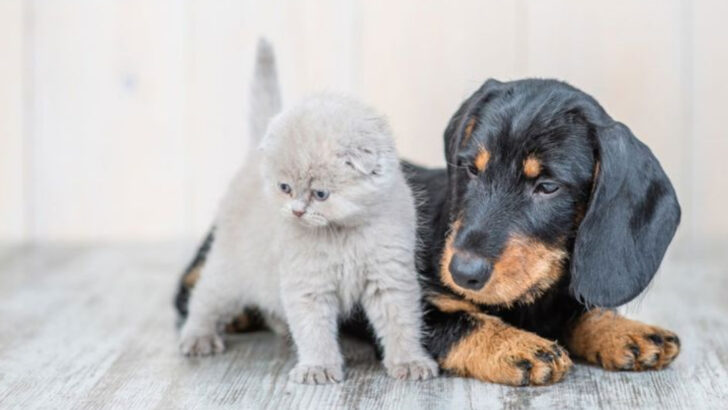Some dogs were simply never meant to live with cats.
While many breeds can be trained to tolerate a feline roommate, others see a cat and immediately think: enemy, chew toy, or snack. Their instincts run too deep, their patience too thin, and their prey drive too strong. Even the best training might not override thousands of years of genetics.
From high-energy hunters to stubborn guardians, these breeds tend to make life miserable for any cat unlucky enough to cross their path. If you’ve ever wondered why some dogs just can’t resist chasing, barking, or glaring at a cat with pure contempt, you’re about to find out.
Whether you’re a cat lover, a dog enthusiast, or just curious about which breeds are best kept away from your feline friend, this list will open your eyes—and maybe make you rethink that “adorable dog-and-cat duo” dream.
Siberian Husky
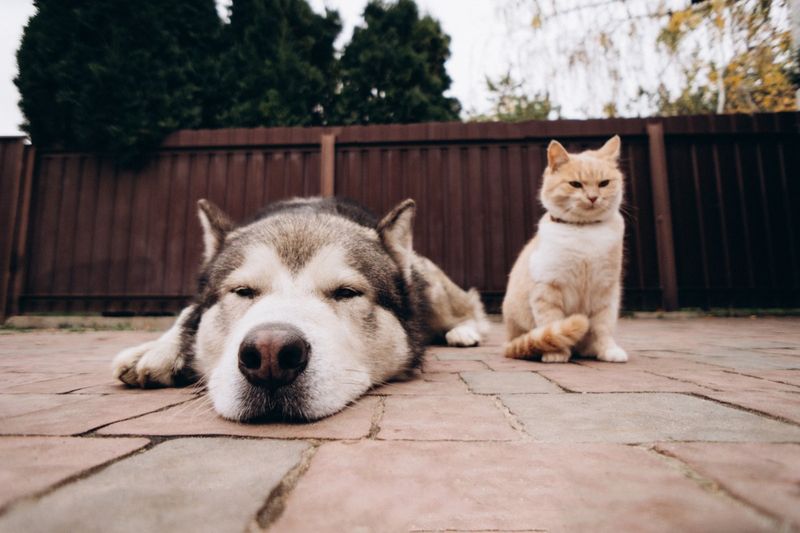
A Siberian Husky’s icy blue eyes and wolf-like stance are mesmerizing but be wary if you have a cat at home. Known for their high prey drive, these dogs may see smaller animals, including cats, as something to chase.
Their independent nature and history of pulling sleds across vast tundras require a lot of physical activity. This energetic breed thrives in the cold and loves to run, which may not leave much room for patience when it comes to sharing space with a feline.
Their pack mentality often means they prefer canine company over any other.
Jack Russell Terrier
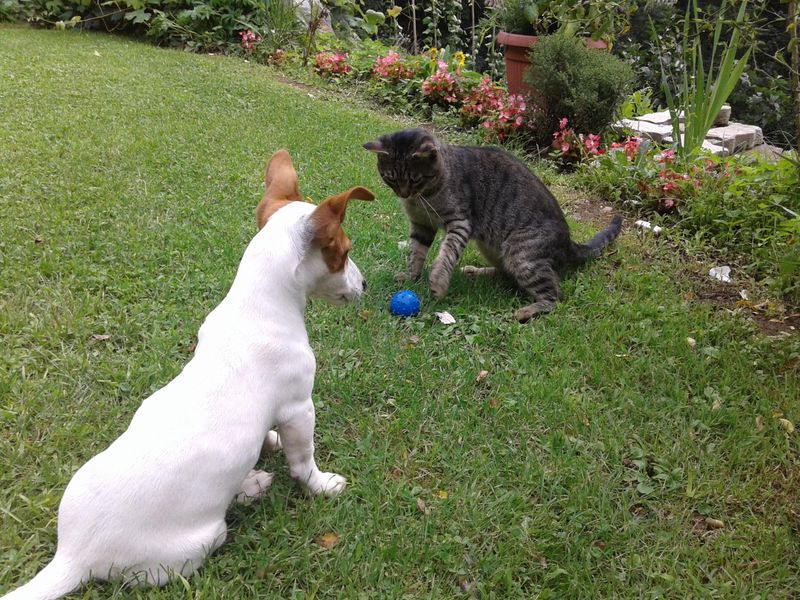
Jack Russell Terriers are energetic and highly intelligent, but they often see smaller animals as prey. Imagine a small dog with seemingly boundless energy and a laser focus on its target; that’s the essence of a Jack Russell.
Bred for hunting, these dogs have a strong instinct to chase, which can spell trouble for any feline friend. Their mischievous nature and quick reflexes make them relentless pursuers.
While they’re delightful companions for active humans, introducing them to a cat might lead to a high-speed chase rather than a peaceful coexistence.
Greyhound
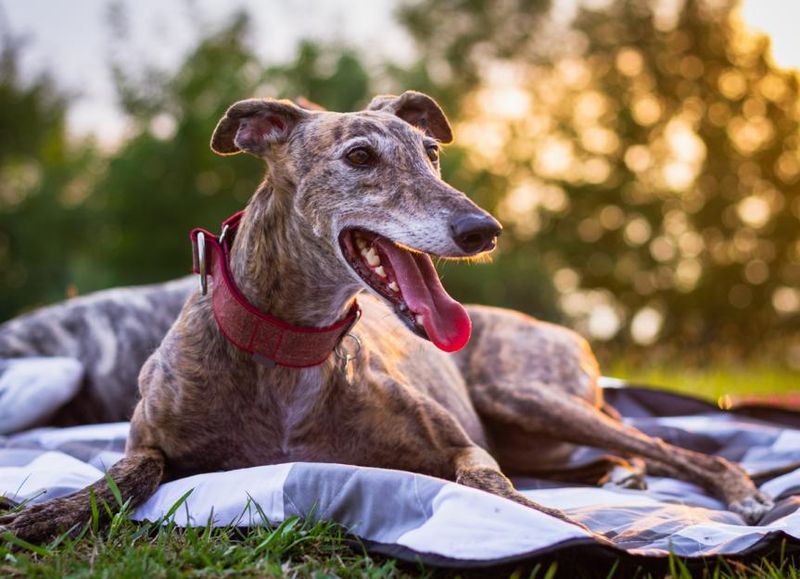
Greyhounds, with their sleek bodies and racing heritage, are known for their incredible speed. Although gentle and calm with humans, their instinct to chase anything small and fast is hardwired.
Picture a blur of motion as they spot a potential prey; that’s the Greyhound’s calling. These dogs are built for speed, with a history of hunting and racing that dates back centuries.
While they make loving pets, their natural instinct can lead to trouble if a cat crosses their path. The chase is in their DNA, making feline friendships challenging.
Dachshund
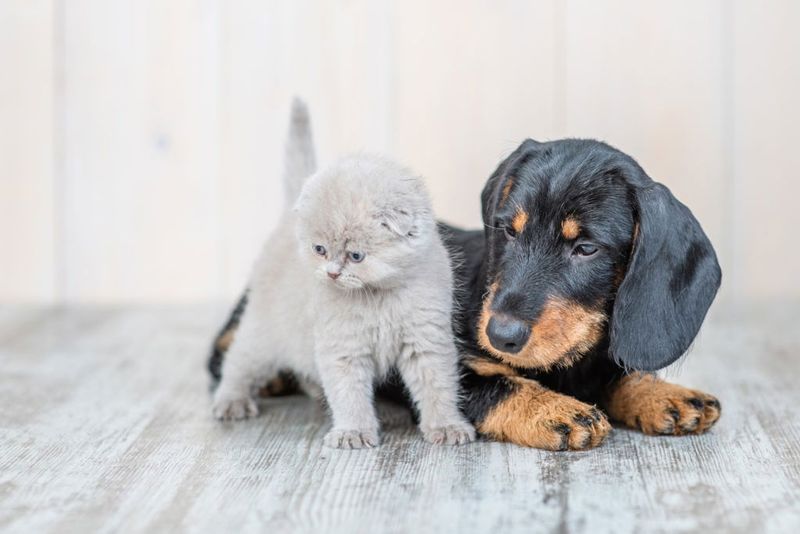
Dachshunds are charming with their long bodies and short legs, but don’t let their cute exterior fool you. Bred to hunt badgers, these little dogs have a strong prey drive.
Their persistence and determination are unmatched, making them relentless when on the scent of something interesting. Cats, with their unpredictable movements, can trigger these instincts.
Their loyalty to their human family doesn’t always extend to other pets, especially those they perceive as prey. This makes harmonious living with a cat a tricky endeavor.
Alaskan Malamute
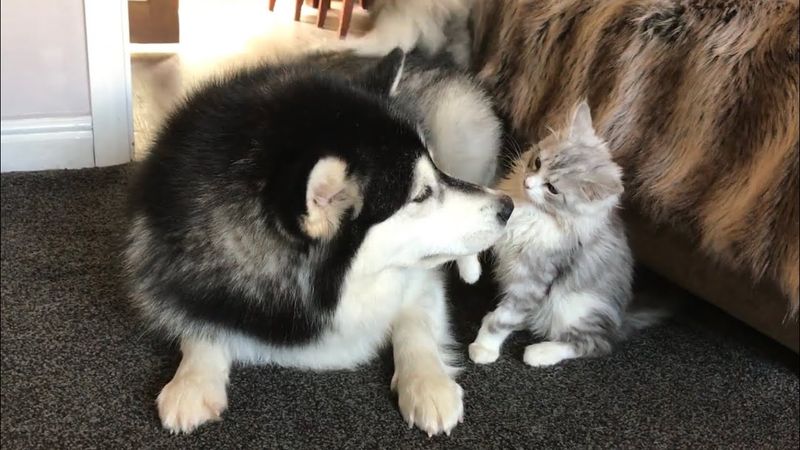
Alaskan Malamutes are majestic and powerful, often resembling their wolf ancestors. Their independent spirit and strong prey drive make them less than ideal roommates for cats.
These dogs were bred for strength and endurance, capable of hauling heavy sleds across frozen landscapes. Their natural instincts lean towards hunting, and smaller animals can trigger their chase response.
While they form deep bonds with their human families, their patience with smaller furry companions like cats is limited. A household with both may face challenges in maintaining peace.
Australian Cattle Dog
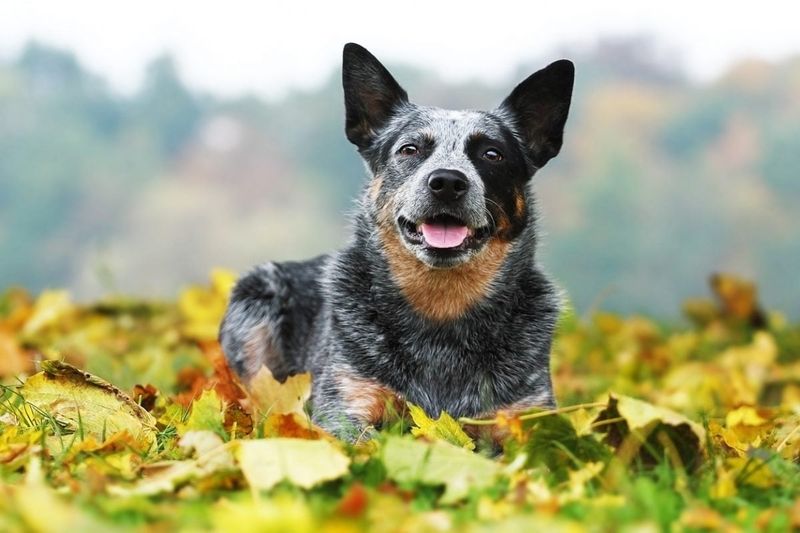
Australian Cattle Dogs are highly energetic and intelligent, bred for herding cattle. Their strong herding instincts can make them see cats as livestock to be corralled.
Imagine a dog with an unyielding drive to control movement and you’ll understand why cats might find them intimidating. Their tenacity and focus are ideal for farm work but can lead to stress in a mixed-pet environment.
While loyal and protective, these dogs need tasks to engage their minds, and chasing a cat might seem like the perfect job to them.
Whippet
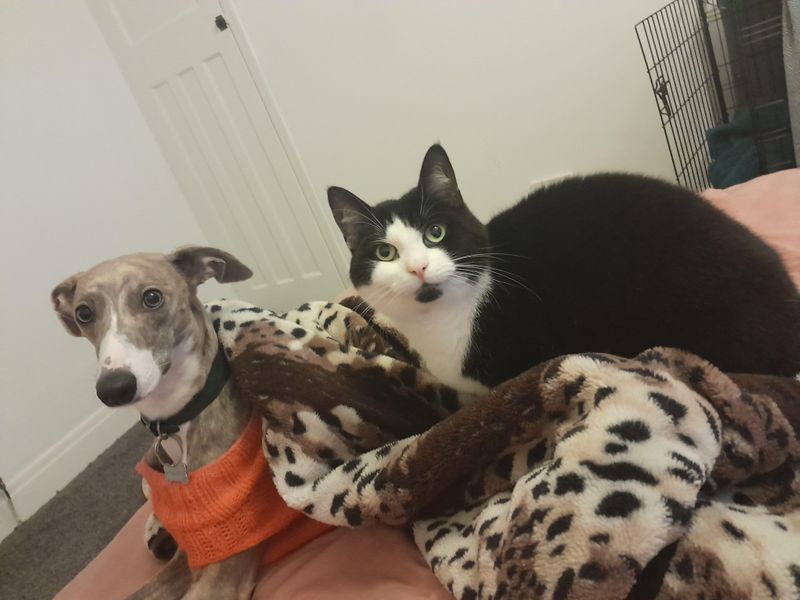
Whippets, the smaller cousins of Greyhounds, are known for their speed and agility. Their love for the chase can overshadow any intention of peaceful coexistence with a cat.
Picture a graceful canine, quick on its feet, seeing a cat dart across the room; the chase is almost inevitable. Whippets have a gentle demeanor with humans but their prey drive is a strong part of their genetics.
While they excel in dog sports and as companions, their instincts can lead to tense moments with feline housemates.
Airedale Terrier
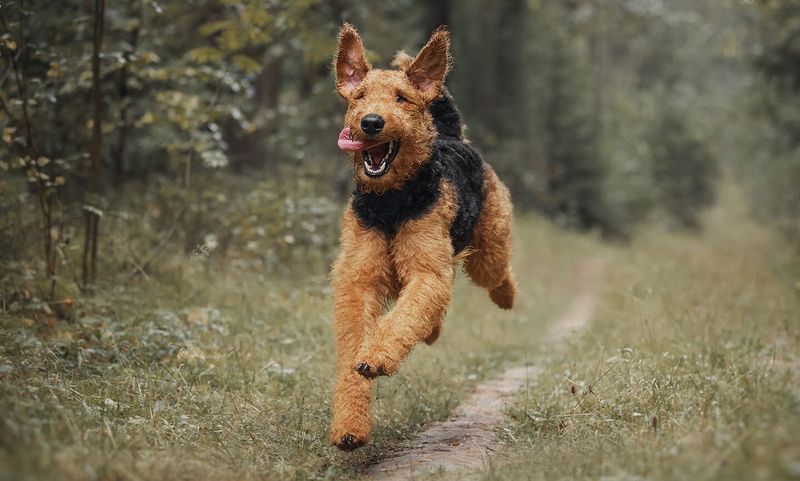
The Airedale Terrier, often called the ‘King of Terriers,’ is known for its intelligence and independence. They have a strong hunting background, which can make living with a cat a challenge.
Their wiry coat and alert stance are signatures of a dog always ready for action. Airedales have a natural curiosity and an instinct to chase smaller animals, often viewing them as quarry.
While they are devoted to their families, their strong-willed nature means they may not easily adjust to sharing their territory with a cat.
Shiba Inu
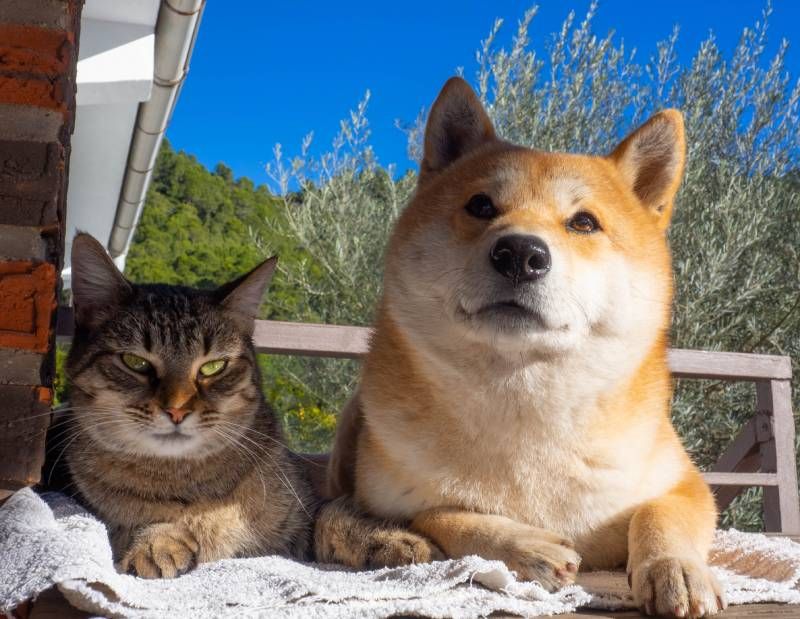
Shiba Inus are known for their spirited personalities and distinctive appearances. With their curled tails and fox-like faces, they’re as charming as they are challenging.
This breed’s independence and hunting heritage mean they often see cats as intriguing targets rather than housemates. While they thrive on companionship, their affection is selective.
Shibas are agile and quick, traits that can lead to a chase if a cat catches their attention. Their territorial nature adds another layer of complexity to a cat-dog household.
Border Collie
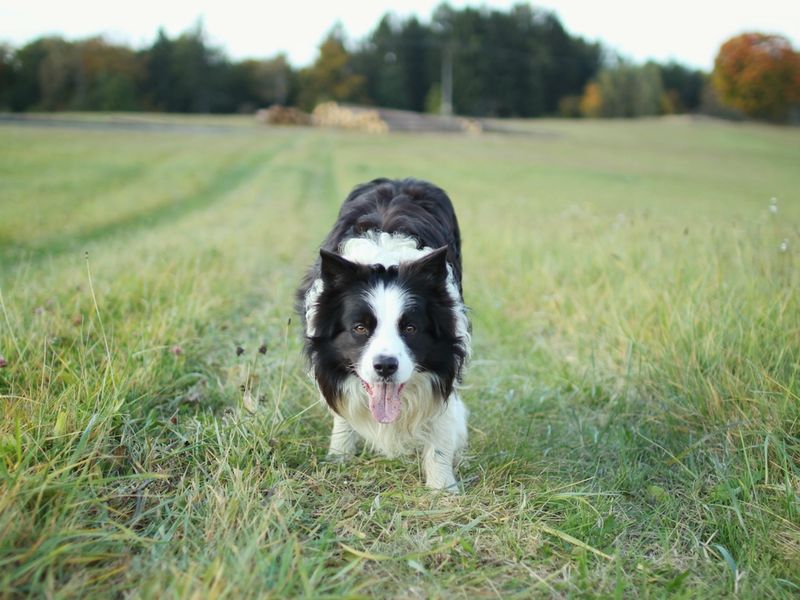
Border Collies are renowned for their intelligence and work ethic. Their sharp minds and herding instincts make them exceptional at guiding livestock, but these same traits can see cats as something to organize.
Their unwavering focus and incredible speed mean that a fleeting feline might engage their herding drive. In a mixed-pet household, this can create tension rather than harmony.
While they are affectionate and loyal, their need for mental and physical stimulation might clash with a cat’s desire for solitude and independence.
Basenji
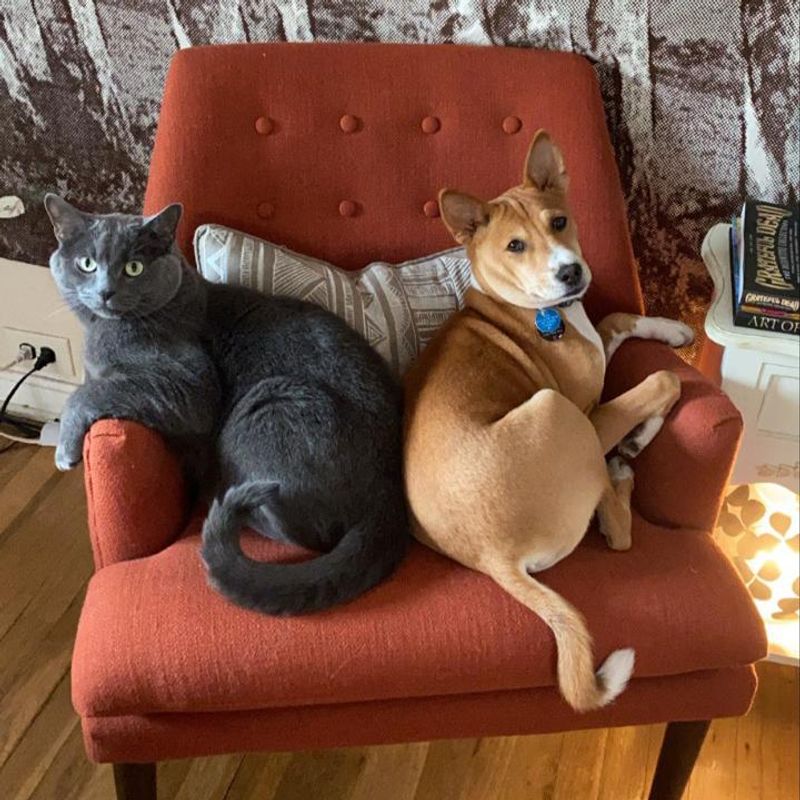
Basenjis are unique with their yodel-like bark and smooth coats. Originating from Africa, they have a strong hunting instinct.
These dogs are known for their curiosity and high energy, traits that make them less than ideal companions for cats. Their independent streak and love for adventure often lead them on solitary explorations, where a cat might become an object of interest.
While they form close bonds with their human families, their interactions with other animals, especially cats, can be unpredictable.
Weimaraner
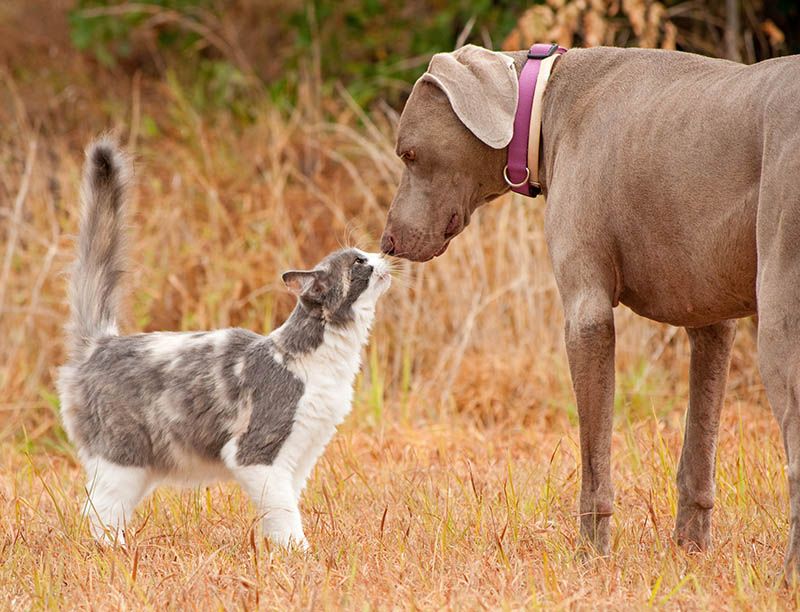
Weimaraners are known for their striking gray coats and statuesque build. Bred for hunting large game, they have a strong prey drive that can make cats uneasy.
This breed’s loyalty to family is unquestionable, but their instincts can take over when a smaller animal is in sight. Picture a graceful dog, poised and ready to spring at the slightest movement; that’s the true nature of a Weimaraner.
While they excel in obedience and agility, their chase instinct can lead to a tense relationship with a feline roommate.
Irish Wolfhound
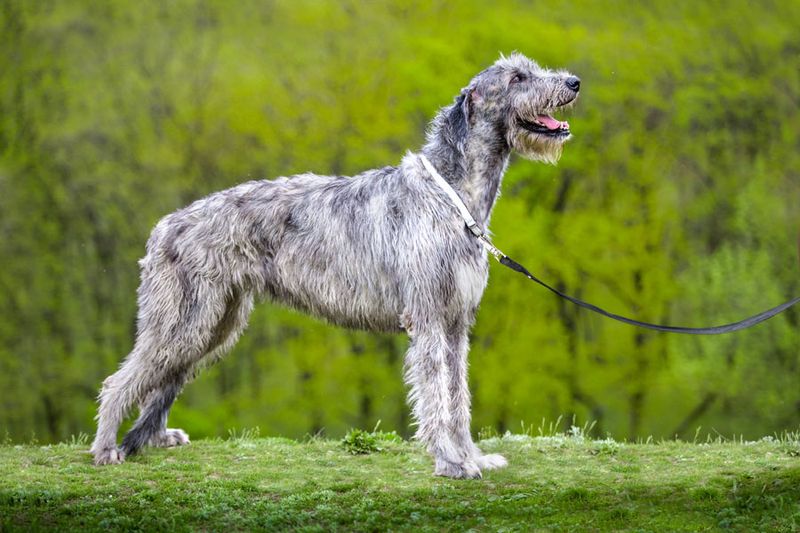
Irish Wolfhounds, one of the largest dog breeds, are known for their gentle demeanor with humans. However, their history as hunters can make cohabitation with cats problematic.
Imagine a giant with a tender heart but an instinct to pursue; that’s the Irish Wolfhound. Their size alone can be intimidating to smaller animals.
While they may not intentionally harm a cat, their natural tendencies can lead to accidental situations. Ensuring harmony between this gentle giant and a feline friend requires careful management and understanding.
Fox Terrier
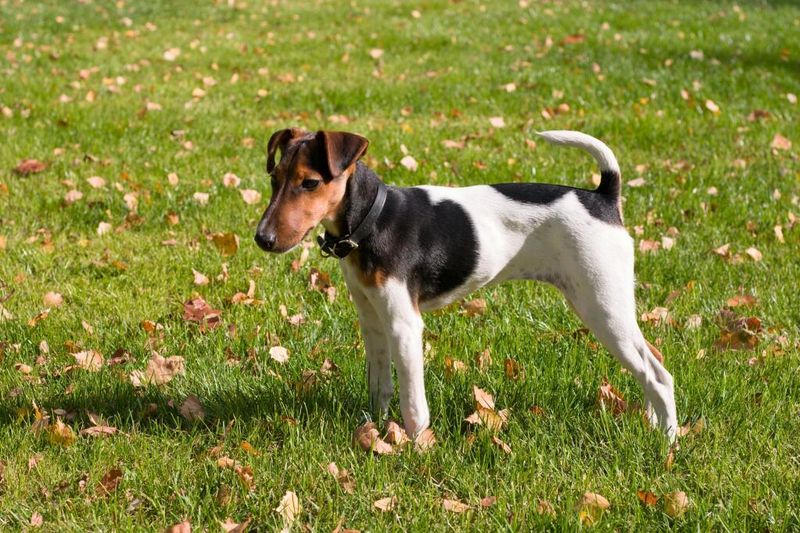
Fox Terriers are small but fierce, with a personality that matches their name. Their history as hunters means they often see cats as quarry.
These dogs are lively and full of energy, always ready for a scamper or chase. Their alertness and quick reflexes are ideal for a hunt but can cause disharmony in a cat-dog household.
While they’re affectionate with people, their strong prey drive can overshadow any attempts at feline friendship. Their lively nature adds to the dynamic, sometimes leading to playful but unwanted pursuits.
Belgian Malinois
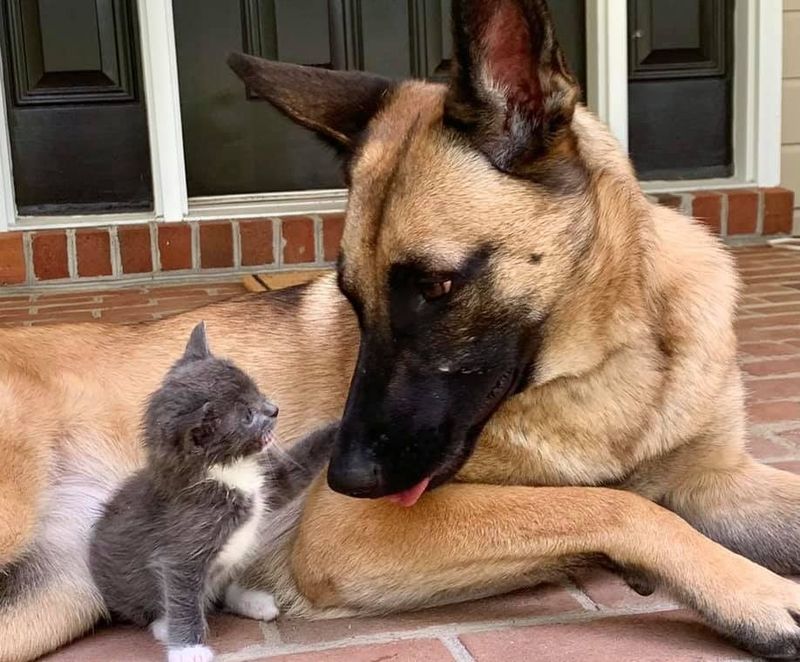
Belgian Malinois are renowned for their working ability, often seen in police and military roles. Their intelligence and drive make them exceptional dogs, but living with a cat can be testing.
These canines are known for their intense focus and energy, often needing a job to be truly satisfied. A cat’s unpredictable movements can become an unintended target of their attention.
Their loyalty to their handlers is unmatched, but their need for mental stimulation might not align with a feline’s laid-back lifestyle. Managing this relationship requires patience and proper training.
Afghan Hound
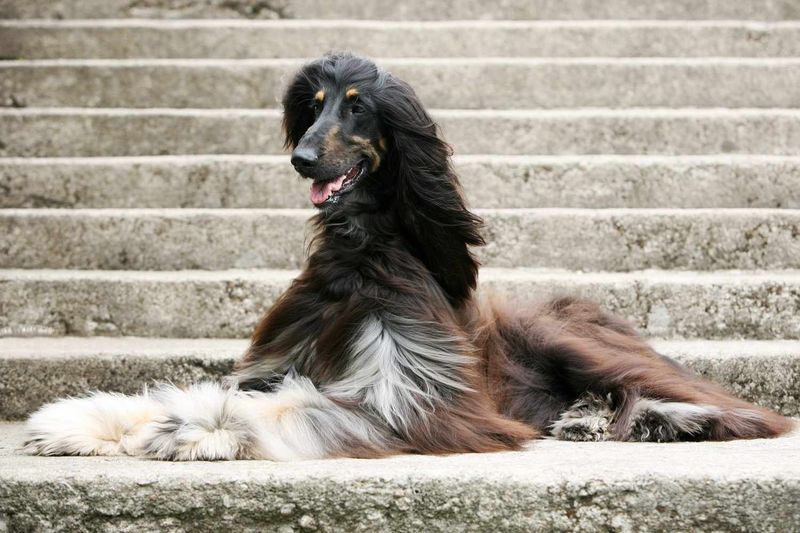
Afghan Hounds are the epitome of elegance with their flowing locks and poised demeanor. However, their history as hunting hounds can lead to friction with feline friends.
Imagine a graceful runner with a keen eye for movement; that’s the Afghan Hound. Their independent nature and love for a good chase can spell trouble for any cat in their vicinity.
While they’re affectionate with family, their aloofness and strong hunting instincts mean that living with a cat might turn into a constant game of pursuit rather than companionship.

